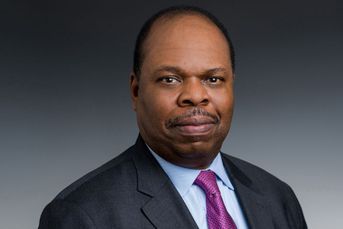Two broker-dealers capitalize on QA3’s demise
Two broker-dealers have emerged as early winners in the fight over the 400 representatives affiliated with QA3 Financial Corp., which officially shut down Friday
Two broker-dealers have emerged as early winners in the fight over the 400 representatives affiliated with QA3 Financial Corp., which officially shut down Friday.
Last week, as recruiters mounted a frenzied campaign to sign up reps from the failed broker-dealer, FSC Securities Corp., a subsidiary of American International Group Inc., pre-registered about 50 brokers who were responsible for $7 million in fees and commissions. Most of the advisers going to FSC went as a team called The Retirement Group LLC, which is based in San Diego.
Meanwhile, Securities Service Network Inc. said it has received commitments from 32 QA3 reps who produced $6 million in fees and commissions. They comprised two groups: Orizon Investment Counsel LLC of Omaha, Neb., which has seven reps, and ESI Financial of Caledonia, Mich., which has 25.
The QA3 brokers sought to move in groups because it gave them leverage in negotiating payouts, according to recruiters.
QA3, which at its peak did $50 million in annual revenue, is the latest of several broker-dealers to have closed recently. Data collected by InvestmentNews indicate that about 24 firms shut down last year. Like QA3, many of them were involved in selling Regulation D private placements that regulators subsequently claimed were fraudulent. That exposed the firms to legal costs and claims from investors that threatened to wipe them out.
In a court filing in September, QA3 acknowledged that it was “facing bankruptcy” indirectly as a result of the private-placement legal claims. The firm sued its insurance carrier because it capped its coverage for those claims at $1 million. QA3 maintained that the policy promised coverage for up to $7.5 million.
Last month, the firm was hit with another severe setback when it lost a $1.6 million arbitration award to an elderly couple who invested in real estate deals that went bust.
As a result of QA3’s difficulties, many of its brokers had made contingency plans in the event that the firm shut down.
QA3 broker John Jastremski, who is moving to FSC, acknowledged that he had considered six broker-dealers over the past few months and was ready to make a move two weeks before QA3 officially said it was closing.
The biggest reason QA3 reps have been attracted to FSC and Securities Service Network is the financial stability of the firms, said executives and brokers involved in the moves.
“Representatives are attracted to [Securities Services Network] because of our stability — 28 years of experience — and our strong capital position,” Wade Wilkinson, the firm’s chief executive, said in a statement.
Mark Schlafly, FSC’s CEO, said his firm has no debt and has excess net capital.”Financially, our firm is sound,” he said.
Mr. Jastremski, who worked with an independent recruiter to make the change, declined to comment about the payout and upfront money FSC offered him and other advisers. When compared with other broker-dealer offers, the FSC package is “fair,” he said.
“There’s no question other firms were more aggressive,” he said.
Mr. Jastremski said FSC’s stability was more important than financial incentives. “There’s no question that a firm’s net capital was the No. 1 concern for me,” he said.
FSC’s newfound reputation for financial stability is a clear turnaround from the firm’s fortunes of almost two and a half years ago, when it faced questions about its financial health after the federal government bailed out its parent, AIG. Moreover, a sale of the AIG broker-dealer group in August 2009 was halted hours before it was scheduled to be announced.
The demise of QA3 became certain Feb. 4, when chief executive and owner Steve Wild circulated an e-mail saying: “In light of the arbitration award rendered against QA3 on Jan. 14, and the fact that our errors-and-omissions carrier has not yet provided coverage set forth in our policy, [we will cease conducting business effective Feb. 11].”
Mr. Wild did not return phone calls over the past two weeks seeking comment.
He has been one of the most successful entrepreneurs in the independent-contractor-broker-dealer industry. In 1998, he sold Securities America Inc. to American Express Co.
QA3 was one of the leading sellers of Regulation D private placements over the past decade, and the Securities and Exchange Commission has charged that two of those deals, involving Medical Capital Holdings Inc. and Provident Royalties LLC, were fraudulent.
Regulators with the Financial Industry Regulatory Authority Inc. have been watching the firm’s levels of net capital closely lately, as losses of securities arbitration claims have to be recorded in a firm’s net-capital calculations. According to its 2009 audited financial report, QA3 had $118,000 in excess net capital at the end of that year.
E-mail Bruce Kelly at [email protected].
Learn more about reprints and licensing for this article.








